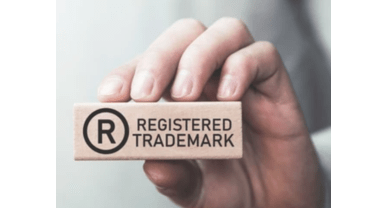TRADEMARK REGISTRATION PROCESS IN INDIA
Introduction
A trademark is any word, logo, device, brand, heading, label, ticket, name, or signature which is capable of distinguishing the goods or services of one entity from those of another. It must be capable of being represented graphically, and it may include shape of goods, their packaging, and combination of colours. The law which governs the process of registration is The Trade Marks Act, 1999, and Trademark Rules, 2017, provide the legal framework for protection, registration, enforcement, and safeguarding the rights of Trademark holders, whether registered or not.
Public Search for a Trademark
- Before filing an application for the registration of a trademark, the applicant must conduct a public search to ensure that no similar or identical trademark has already been taken by other owners. As there are hundreds of different types of trademarks available, it is important to make sure that no identical or similar trademark is available in the trademark registry.
Process of Trademark Registration
- To register a trademark, an application has to be filed before Trademark Registry, one may file an online application or submit it physically at the registrar’s office. The head office of Trademark Registry is in Mumbai, and other regional branches are at Delhi, Ahmedabad, Chennai, Kolkata.
Filing TM-A Form:
- The first step in filing of an application is by submitting TM-A form for registration of trademark. A single application can be filed for multiple classes or series trademark.
Fees:
- For a / Startup/Small Enterprise/Individual; ₹5000 for physical filing and ₹4500 for online filing.
- In all other case; ₹10,000 for physical filing and ₹9500 for online filing
Examination of application by Registrar
- Once the application for the trademark submitted, the registrar will examine whether the mark violates any provision of Section 9 or Section 11 of the Trade Marks Act, 1999, such as whether the mark is identical or similar to another trademark or generic or descriptive in nature.
- If registrar finds that the application violates any provision, the application will be objected and one may file a reply within 30 days to examination report against any objections to waive them off.
- If the Registrar is not satisfied with the reply of examination report, a hearing may be scheduled. After the hearing, the Registrar may accept the mark and forward the application for publication in the journal or reject the application if issues are still not resolved.

Publication of Trademark in Trademark Journal
- If the registrar accepts the application either absolutely or subject to conditions, the application will be advertised in the trademark journal.
- Within 4 months from the date of publication, one may file a Notice of Opposition under Section 21 of Trade Marks Act, 1999 read with Rule 42 of Trademark Rules, 2017, by filing TM-O form along with the government fees of ₹3000 in case of physical filing, or ₹2700 for online filing.
- If no opposition is received within 4 months, these steps will not be applicable to you. Your trademark will proceed towards acceptance, and a certification of registration shall be issued.
- If any notice of opposition is raised, a copy of said notice shall be served by the Registrar to the Applicant within three months of the receipt of same.
- The applicant is required to submit a counter statement as per Rule 44 of Trademarks Rules, 2017, by filing form TM-O within two months from the receipt of the copy of notice of opposition.
- The opponent, shall within two months from the service of a copy of counterstatement, either submit evidence by way of affidavit as per Rule 45 of Trademark Rules, 2017 or rely on the facts stated in the notice of opposition. If the opponent takes no action within two months, he shall be deemed to have abandoned his opposition.
- The applicant, shall within two months from the service of a copy of affidavit in support of opposition, either submit evidence by the way of affidavit as per Rule 46 of Trademark Rules, 2017 or rely on the facts stated in the counterstatement. If the applicant takes no action within two months, he shall be deemed to have abandoned his application.
Hearing on Trademark Opposition
- After the closer of the evidence, the Registrar shall give notice to the parties of the first date of hearing as per Rule 50 of Trademark Rules, 2017. The date of hearing shall be at least 30 days after the first notice, after hearing both parties, the Registrar will consider the evidence and all attached documents, and then pass an order of Acceptance or Rejection of the Trademark Application.
- If the trademark application accepted by the Registrar, it will proceed to issue certificate of registration.
Certificate of Registration
- The Registrar after acceptance of trademark application shall issue the Certificate of Registration and it shall include the Trademark and bear the seal of the Trade Marks Registry along with ®
- The certificate of registration shall be valid for 10 years from the date of the filing of the application and it can be renewed by filing an application for the renewal shall be made in Form TM-R along with the government fees ₹10,000 for physical filing and ₹9000 for online filing.
Documents required for Trademark Registration
- In case of Individual & Sole proprietorship
- Duly Signed Form- 48
- Copy of logo optional (In case of word mark).
- Copy of Identity proof of the individual applicant like Passport, Aadhar card, PAN card etc.
- Copy of Address proof of the individual applicant
- In case of LLP/ Company/ Small companies or Start-ups
- Duly signed Form- 48
- Udyam Registration Certificate
- Partnership Deed or the Incorporation Certificate
- Copy of Identity Proof of the applicant
- Copy of address proof of the applicant
Author:– Rishabh Audichya , in case of any queries please contact/write back to us at support@ipandlegalfilings.com or IP & Legal Filing.
REFERENCES
- Trade Marks Act, 1999
- Trade Marks Rules, 2017
- Official website of Intellectual Property Rights


